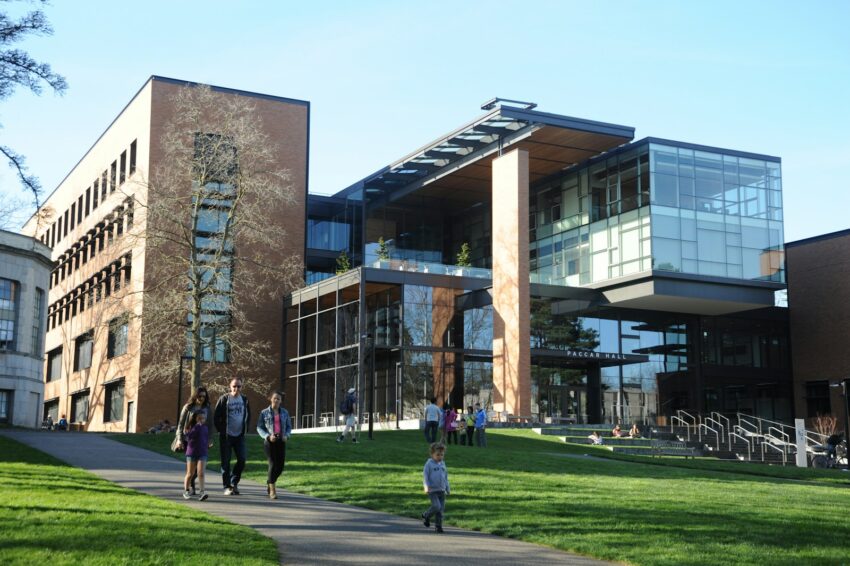College Campus Safety Tips
Starting the academic journey of college brings forth many colorful experiences, opportunities, and, inevitably, the need for vigilance. While often perceived as sanctuaries of higher learning, college campuses are microcosms of society, each with its own safety challenges. This guide is all about the nuances of college campus safety. It will also offer pragmatic tips to ensure students understand these academic landscapes with confidence, awareness, and a keen eye for their well-being.

Stay Streetwise
As the first rays of independence dawn upon college students, embracing a streetwise mindset is crucial when traversing the campus terrain. Familiarize yourself with the campus layout, emergency contact points, and areas of congregation. Avoid poorly lit or isolated shortcuts, as these can become potential hotspots for safety concerns.
When venturing off-campus, employ the buddy system. Having a trusted companion can deter potential threats, whether it’s an evening stroll or a late-night library session. Be aware of your surroundings, secure your belongings, and trust your instincts. If a situation feels uncomfortable or unsafe, err on the side of caution and seek assistance.

Safeguarding Your Cyberspace
College life seamlessly intertwines with the digital realm in the age of interconnectedness. Technology enhances academic pursuits and exposes students to potential cyber threats. Safeguard your personal information, utilize solid and unique passwords, and be discerning about the information you share online.
Public Wi-Fi, ubiquitous on college campuses, can be a double-edged sword. Exercise caution when accessing sensitive information on public networks, considering the potential risks of data breaches. Keep your devices updated with the latest security patches and install reputable antivirus software to fortify your digital defenses and avoid the possibility of malware, phishing, or ransomware.
Understanding the Nightlife Safely
College life often unfolds under the luminescence of both academic and social endeavors. As the sun sets and the campus transforms, it’s essential to approach nightlife with enthusiasm and caution. If attending social events or parties, be mindful of your alcohol consumption, stay hydrated, and never leave your drink unattended.
Traveling at night demands extra precautions. Stick to well-lit paths, use reputable transportation services, and share your plans with friends or roommates. Many college campuses offer escort services or shuttle buses during late hours—take advantage of these resources to ensure a safe journey back to your dormitory or residence.
Securing Your Living Quarters
Your dormitory or off-campus residence should be a sanctuary, not a source of anxiety. Take proactive steps to secure your living space by locking doors and windows, even if you step out briefly. Report any faulty locks or security concerns to the relevant authorities promptly.
Get to know your neighbors and establish a community within your housing complex. This camaraderie fosters a supportive environment and creates a network of watchful eyes that can deter potential threats. Invest in essential security measures, such as door alarms or window locks, to enhance the safety of your living quarters.
Tapping into Campus Safety Services
Colleges typically provide an array of safety services and resources. Familiarize yourself with campus security protocols and the contact information for campus security personnel. Many institutions offer safety workshops or self-defense classes—consider participating to bolster your personal safety skills.
Take advantage of campus security escorts, particularly during late hours or traversing less-traveled routes. If you observe any suspicious activity or feel unsafe, don’t hesitate to contact campus security or local law enforcement. Your vigilance and prompt reporting contribute to the overall safety of the college community.
Making an Emergency Plan
While optimism should permeate the college experience, preparedness is an invaluable asset. Familiarize yourself with the emergency evacuation routes in your academic and residential buildings. Keep a small emergency kit in your living space, including essentials like a flashlight, first aid supplies, and vital contact information.
Establish communication protocols with your roommates or close friends in case of emergencies. Share your class and activity schedule with someone you trust, ensuring that there’s always a point of reference for your whereabouts. Emergencies are unpredictable, but a well-thought-out plan can instill a sense of control in times of uncertainty.
Emphasizing a Culture of Safety
Safety is a collective endeavor, and fostering a culture of awareness within the college community enhances the well-being of everyone. Engage in campus safety initiatives, attend workshops, and participate in discussions about safety concerns. Actively support or contribute to programs that promote a secure and inclusive environment.
Report suspicious activity promptly, and encourage your peers to do the same. Communication is a potent tool in maintaining a safe campus. Whether through social media groups, campus forums, or established reporting channels, stay informed about safety updates and contribute to the collective vigilance that defines a secure academic community. The legal expertise of a Houston criminal defense attorney can also help you to avoid the life-altering repercussions of a false accusation on campus.
Conclusion
College is a transformative journey, a crucible where academic pursuits meld with personal growth. Navigating the campus landscape with a keen eye on safety doesn’t diminish the vibrancy of this odyssey; it enhances it. Empower yourself with knowledge, cultivate a streetwise mindset, and actively contribute to a culture of safety that fortifies the academic haven.
As you stride through the ivory towers of academia, let your steps be marked not only by intellectual pursuits but also by a vigilant awareness of your surroundings. In this fusion of knowledge and watchfulness, the college experience becomes not just a chapter of academic enlightenment but a testament to the resilience and preparedness that defines a responsible and safety-conscious scholar.






